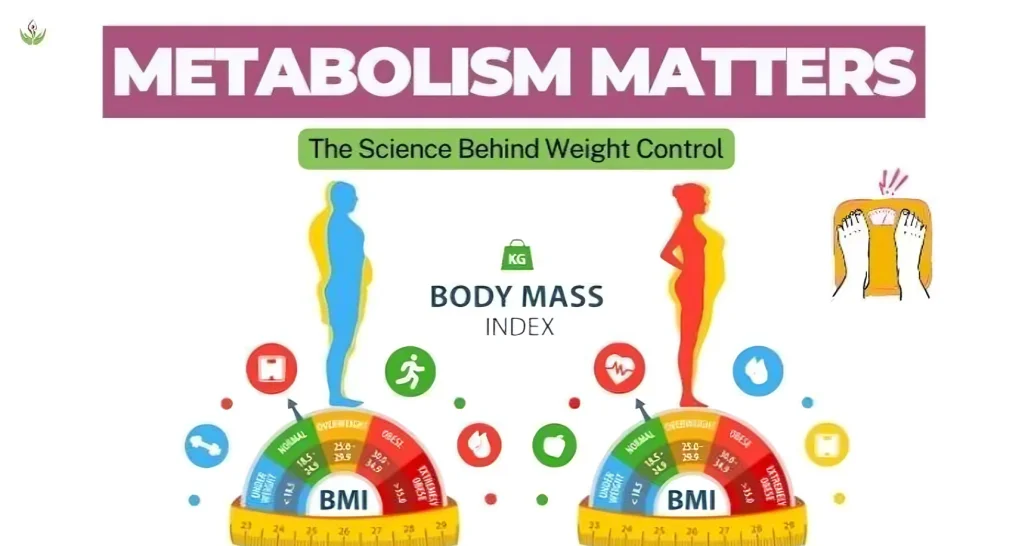
Introduction:
In the journey towards weight loss, understanding the fundamental principles of calories and metabolism is crucial. These two factors play a significant role in determining how our bodies respond to different foods and activities. In this comprehensive guide, we'll delve deep into the science behind weight loss, shedding light on the intricate workings of calories and metabolism.
Understanding Calories:
Calories are units of energy derived from the foods we consume. Each food item contains a certain number of calories, which our bodies use for various functions such as basic metabolic processes, physical activity, and even digestion. The concept of "calories in versus calories out" forms the basis of weight management. When we consume more calories than we expend, the excess energy is stored in the form of fat, leading to weight gain. Conversely, consuming fewer calories than we burn results in weight loss.
Factors Affecting Caloric Intake:
Several factors influence our daily caloric intake, including age, gender, weight, height, and activity level. Understanding our individual caloric needs is essential for creating a personalized weight loss plan. Tools like calorie calculators can help estimate our basal metabolic rate (BMR) – the number of calories our bodies need to maintain basic functions at rest – and factor in additional calories burned through physical activity.
Quality vs. Quantity:
While calorie counting is a valuable tool for weight management, focusing solely on quantity overlooks the importance of food quality. Not all calories are created equal. Nutrient-dense foods such as fruits, vegetables, lean proteins, and whole grains provide essential vitamins, minerals, and fiber, promoting satiety and overall health. On the other hand, foods high in added sugars, refined carbohydrates, and unhealthy fats may contribute to weight gain and metabolic imbalances.
The Role of Metabolism:
Metabolism encompasses all biochemical processes that occur within the body to sustain life. It consists of two main components: anabolism, the building of complex molecules, and catabolism, the breakdown of molecules to release energy. Basal metabolic rate (BMR) accounts for the majority of calories burned at rest, supporting vital functions such as respiration, circulation, and cell repair. Factors such as genetics, age, body composition, and hormonal fluctuations influence individual metabolic rates.
Strategies for Boosting Metabolism:
While our metabolic rate is largely determined by genetics, certain lifestyle factors can influence its efficiency. Incorporating regular physical activity, particularly strength training and high-intensity interval training (HIIT), can increase muscle mass and elevate resting metabolic rate. Additionally, consuming adequate protein supports muscle growth and repair, as protein has a higher thermic effect compared to carbohydrates and fats. Ensuring adequate sleep, managing stress levels, and staying hydrated are also essential for optimizing metabolic function.
Balancing Calories and Metabolism for Weight Loss:
Achieving sustainable weight loss requires striking a balance between caloric intake and metabolic expenditure. By adopting a nutrient-rich diet, controlling portion sizes, and engaging in regular physical activity, individuals can create a calorie deficit conducive to fat loss. It's essential to prioritize long-term lifestyle changes over short-term fixes, aiming for gradual, steady progress rather than rapid weight loss. Consulting with a healthcare professional or registered dietitian can provide personalized guidance and support on the journey to achieving and maintaining a healthy weight.
Conclusion:
In summary, understanding the science behind weight loss involves grasping the interplay between calories and metabolism. By making informed choices about our dietary habits, physical activity levels, and overall lifestyle, we can empower ourselves to achieve lasting results in our weight management efforts. Remember, the key lies in finding a sustainable approach that nourishes both body and mind, promoting not just weight loss, but overall health and well-being.







Leave a comment